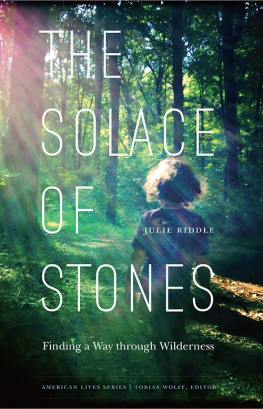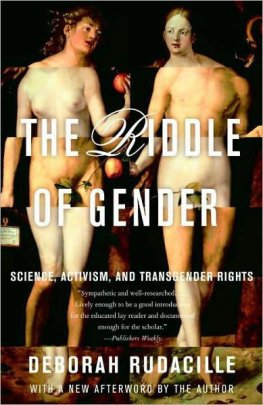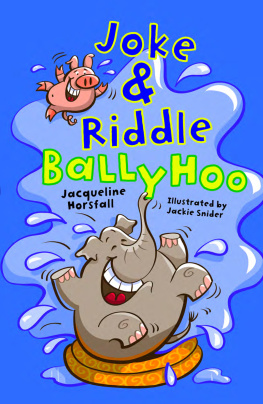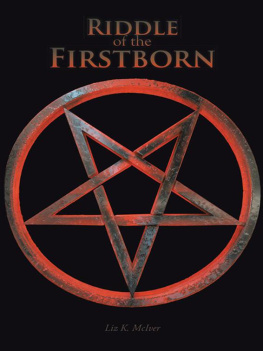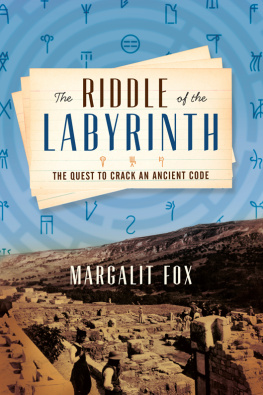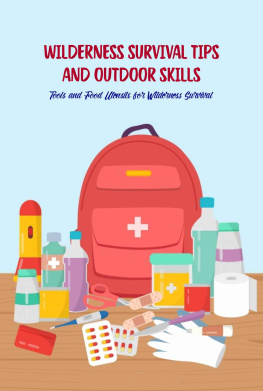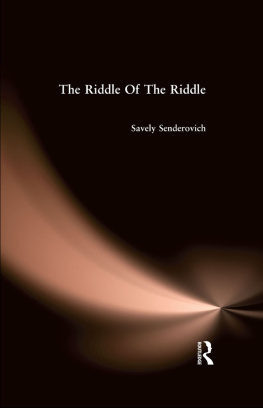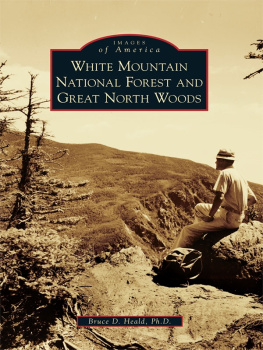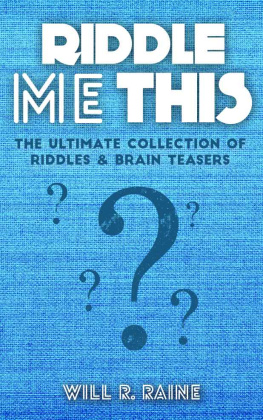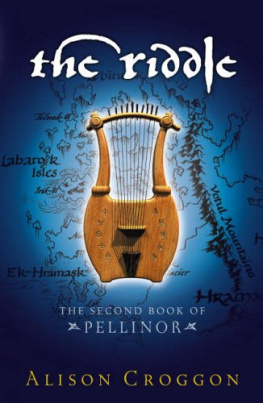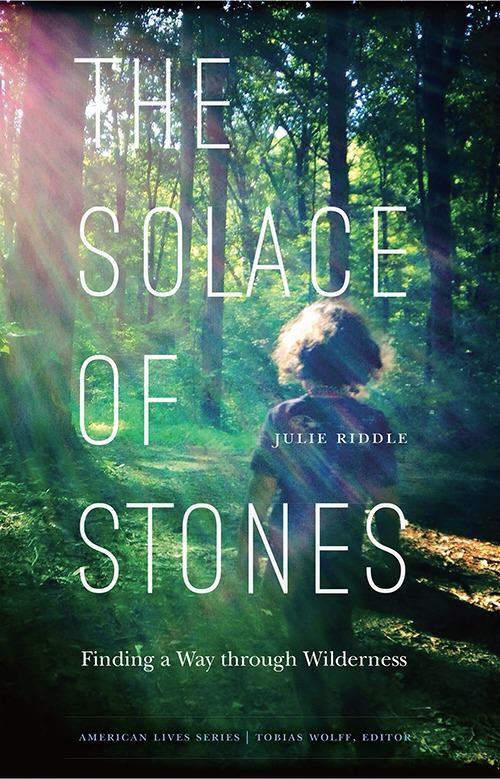Heartbreaking, courageous, and written with rare beauty. The Solace of Stones will be a Western classic.
Dinty W. Moore, author of Between Panic and Desire
This is not a sentimental story of recoveryit is a powerful story of renewal.
The Solace of Stones
Finding a Way through Wilderness
Julie Riddle
University of Nebraska Press | Lincoln and London
2016 by Julie Riddle
Cover image JonKelvey/Stockimo/Alamy
Author photo by Garrett Riddle
Shadow Animals was previously published in the Georgia Review 67, no. 3 (Fall 2013): 42447.
All rights reserved
Publication of this volume was assisted by a grant from the Friends of the University of Nebraska Press.
Library of Congress Cataloging-in-Publication Data
Names: Riddle, Julie.
Title: The solace of stones: finding a way through wilderness / Julie Riddle.
Description: Lincoln: University of Nebraska Press, 2016. | Series: American lives | Includes bibliographical references.
Identifiers: LCCN 2015038289
ISBN 9780803276864 (paperback: alkaline paper)
ISBN 9780803288348 (epub)
ISBN 9780803288355 (mobi)
ISBN 9780803288362 (pdf)
Subjects: LCSH : Riddle, Julie. | Riddle, JulieChildhood and youth. | PioneersMontanaButteBiography. | Frontier and pioneer lifeMontanaButte. | Butte (Mont.)Biography. | Sexually abused childrenMontanaButteBiography. | Child sexual abuseMontanaButte. | Recovered memoryCase studies. | Riddle, JulieTravelJapan. | English teachersJapanBiography. Classification: LCC CT 275. R 5616 A 3 2016 | DDC 978.6/68033092dc23 LC record available at http://lccn.loc.gov/2015038289
The names of some people in this work are actual, but most peoples names are invented, out of respect for their privacy. The people, places, and events are accurate representations, to the best of my memory and research, except where my speculations are noted.
The publisher does not have any control over and does not assume any responsibility for author or third-party websites or their content.
For my parents,
Doug and Hildy Johnson,
and for
Garrett,
with love, always
Man is the only animal that laughs and weeps; for he is the only animal that is struck with the difference between what things are, and what they ought to be.
W ILLIAM H AZLITT
Contents
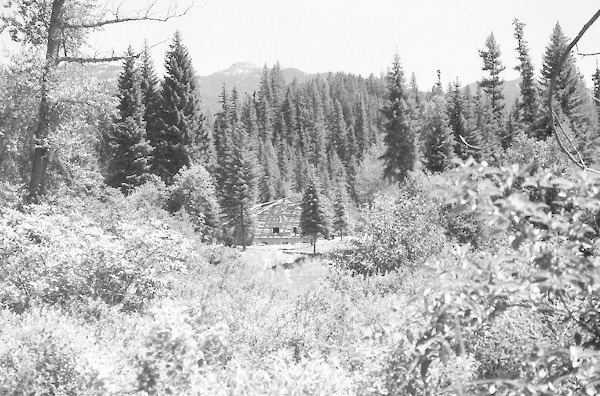
under construction, July 1979, near the Cabinet Mountains Wilderness in northwestern Montana.
On a Friday in July when I was eleven a window slammed shut on my thumb. My best friend and I had climbed into the bunk of her parents camper, which overhung the truck cab; we wanted to watch the trees and highway and yellow stripes speed by as her dad drove us to Bull Lake to camp. Low, dark clouds clotting the sky hid the Cabinet Mountains ragged peaks and spit rain. I slid the bunks long, narrow window open, and my friend and I pressed our faces to the screen, the damp, cool air misting our skin. As we neared the campground I pinched the window tab with my right hand and began to slide the window closed, but halfway home the glass jammed in its metal track. I gripped the far side of the frame with my left hand to gain purchase and shoved the tab with my right. The window stalled and then slid as though the track had been greased, smashing my thumb in the frame.
By late Saturday afternoon, when Mom pulled into the campsite to pick me up, as planned, my thumb had turned feverish and throbbed. Seeping blood, trapped beneath the nail, had grown to a dime-sized puddle. Hold your hand above your heart, Mom instructed at home as she pulled a bag of peas from the freezer. By Saturday evening the throbbing had rippled down my arm and rolled through my body. I complained to no one in particular, the sound of my voice veering close to a whine. Let me see your hand, my father said. I raised my arm, and he clasped my wrist, drawing my thumb close. He shifted my wrist, appraising my thumb as though it were a bent framing nail that he was deciding whether to hammer true. (This was the extent of my fathers touch; while he was affectionate with my mother and engaged with my brother in roughhouse play, he reserved contact with me for practical purposes.) Come on downstairs, he said, releasing his grip. I followed him to his gun shop in the basement, my bare feet slapping cold concrete.
My father stopped before his drill press, bolted to the workbench. He flipped up the lid of a small metal box holding drill bits aligned according to size and selected a slender bit that twisted to a point at the tip. He inserted the bits shaft into the drill presss spindle and twisted the spindle tight, then flipped a switch at the back of the press. The motor rose to a steady pitch. Put your thumb here, he said, tapping a square metal plate below the bit. I rested my pounding thumb on the plate, and my father curled my fingers beneath the metal so the thumb lay flat, exposing the full surface of nail.
I liked to watch my father use his drill press when he worked on guns. Each part of the press moved smoothly: the motors low, easy hum, the hand lever he pulled evenly down, the spindle descending steadily, the whirring bit sinking into steel, tiny shavings curling free, my father raising the spindle just as the bit hit the exact depth he wanted, or after the bit broke through, drilling a clean hole, the spindle dipping quickly from lack of resistance.
Keep your thumb flat and dont move, my father said. He gripped the lever and lowered the spindle, the spinning bit a blur, the bit puncturing my thumb nail, my father raising the lever with expert timing, as though piercing a piece of construction paper without scratching the surface below. The bit lifted and blood spurted in a small black plume, and my thumbs throbbing pain disappeared. Put a Band-Aid over it for a couple days, he said, handing me a paper towel. The nailll fall off before long.
Thanks, Dad, I said, examining my thumb with wonder, like my fathers customers examining the guns he had repaired. He would hand each man his rifle or pistol and explain briefly what the problem had been and how he had fixed it. While my father wrote a receipt, the man would inspect his prized possession, renewed and restored, his face lit with surprise and gratitude.
The next morning, after church, I peeled back the Band-Aid and showed a few friends my thumb. The skin was an impressive bruise from joint to tip, but the hole through the nail drew oohs and questions and closer inspection. My friends shuddered when they learned what my father had done. Werent you scared hed drill into your thumb? someone asked. No, I said.
This wasnt a lie.
Whenever my father prepared to secure a rifle barrel into a stock with resin glass, he would call out to my mother, brother, and me to bring him our broken possessions. We knew to move quickly, because the liquid glass would soon harden. The three of us would scour drawers and bins and boxes and scurry to him, our cupped hands bearing offerings: an earring split from its post, a mug and handle, two halves of a plate, a cracked model train. The next day he returned the pieces to us, mended and whole and useful again, a small dab or thin line of dark brown glass denoting a scar.

